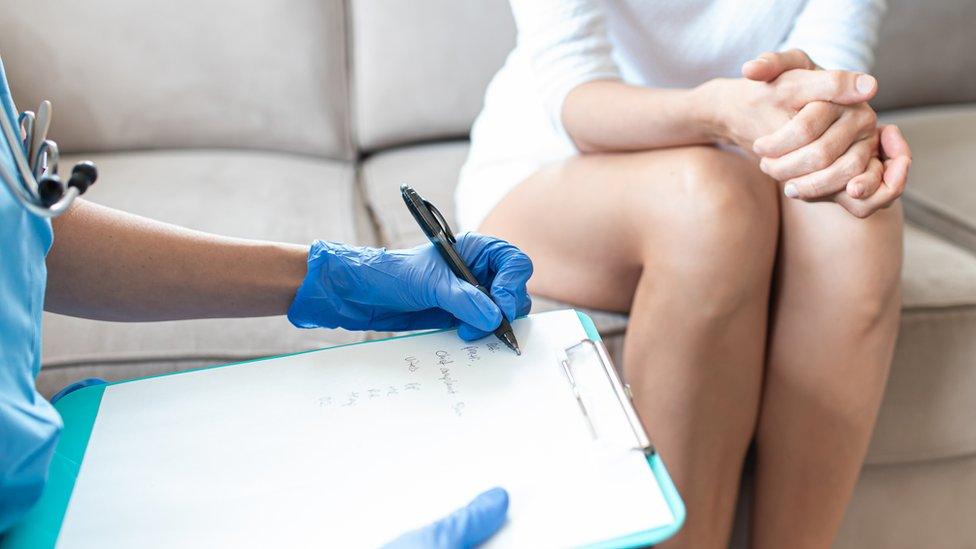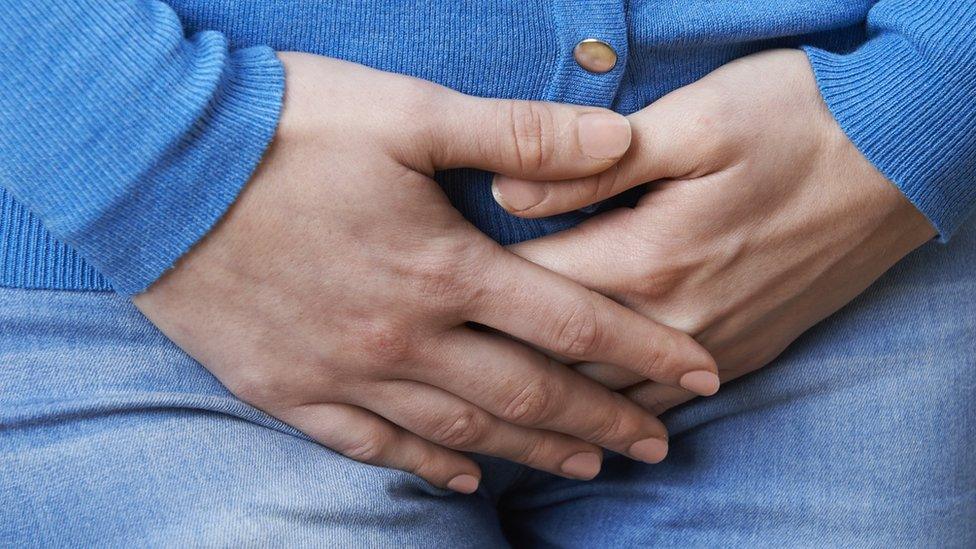Laser vagina menopause therapy shows no benefit in trial
- Published

A potentially risky laser treatment offered to menopausal women to rejuvenate the vagina is no better than sham or fake therapy, researchers say.
They tested it in a trial, external to see if it might ease vaginal dryness and painful sex linked to going through the change.
NHS advisory body the National Institute for Health and Care Excellence says the therapy should only be used for research.
Some private clinics in the UK and the US, however, continue to offer it.
Sexual gratification
Laser rejuvenation involves a probe being inserted into the vagina to heat and change or remodel the surrounding tissue.
Clinics claim kick-starting the body's healing process by purposefully injuring the tissue can increase natural lubrication and restore sexual gratification.
The non-surgical treatment can be completed within a lunch hour but is not entirely risk free, officials say.
The US regulator, external has already said it is "deeply concerned" women can be harmed by the procedure.
Some who have had it have experienced vaginal burns and scarring.
The research, described in the Journal of the American Medical Association, is one of the largest studies to independently scrutinise the therapy using the "gold standard" design of a clinical trial.

NICE has been calling for this type of work, to determine if the therapy is safe and beneficial enough to recommend for wider use in the NHS.
The Australian researchers, not funded by the industry, randomised 85 women to receive either the laser treatment or a placebo procedure - where the probe was inserted but the required "dose" of the laser energy not delivered.
No serious side-effects were recorded - but during the year of follow-up, there was no discernible difference between the two groups in terms of symptom improvement either.
An accompanying editorial in JAMA likened the laser-therapy situation to the recent vaginal-mesh scare, when some women were harmed by a procedure later halted amid safety concerns.
The authors, Drs Marisa Adelman and Ingrid Nygaard, from the University of Utah School of Medicine, said: "The widespread clinical use of vaginal laser therapy, followed by burgeoning reports of adverse events and FDA [US Food and Drug Administration] warnings, brought an unfortunate sense of deja vu.
"After a rush to market vaginal mesh products for the management of pelvic organ prolapse prior to the completion of rigorous randomised trials, these products are no longer marketed in the US.
"Although marketing prior to the availability of evidence demonstrating efficacy and safety may be associated with short-term profits for companies and clinicians, this approach closes any window of opportunity to actually learn what individuals, if any, benefit from the treatment, as well as those at increased risk for harms."
Vaginal dryness
British Menopause Society past-president and spokesman Tim Hillard, a consultant gynaecologist in Dorset, said: "This is the type of study we have been waiting for.
"It's one of the biggest randomised trials and isn't industry funded.
"It really reinforces that doctors should only be offering this therapy in clinical trials to gather more evidence."
New treatments for menopause symptoms were very much needed and worth researching, Mr Hillard said.
"Symptoms like vaginal dryness, itching and discomfort or pain during intercourse are very common and can be very distressing for women," he said.
"It can be difficult to talk about them.
"Many women put up with it and don't seek advice - but there are some treatments that may help and there are specialists who can advise."

Managing the menopause
Most women will reach menopause between the ages of 45 and 55
Symptoms can begin months or even years before periods stop entirely and continue for years after
Hot flushes, night sweats, vaginal dryness, mood changes and difficulty sleeping are common
Doctors may do a blood test to measure hormone levels and can refer patients to a menopause specialist
Hormone-replacement therapy or vaginal oestrogen creams and lubricants may help
Menopause: what are the symptoms and why does it happen?
Related topics
- Published31 July 2018
